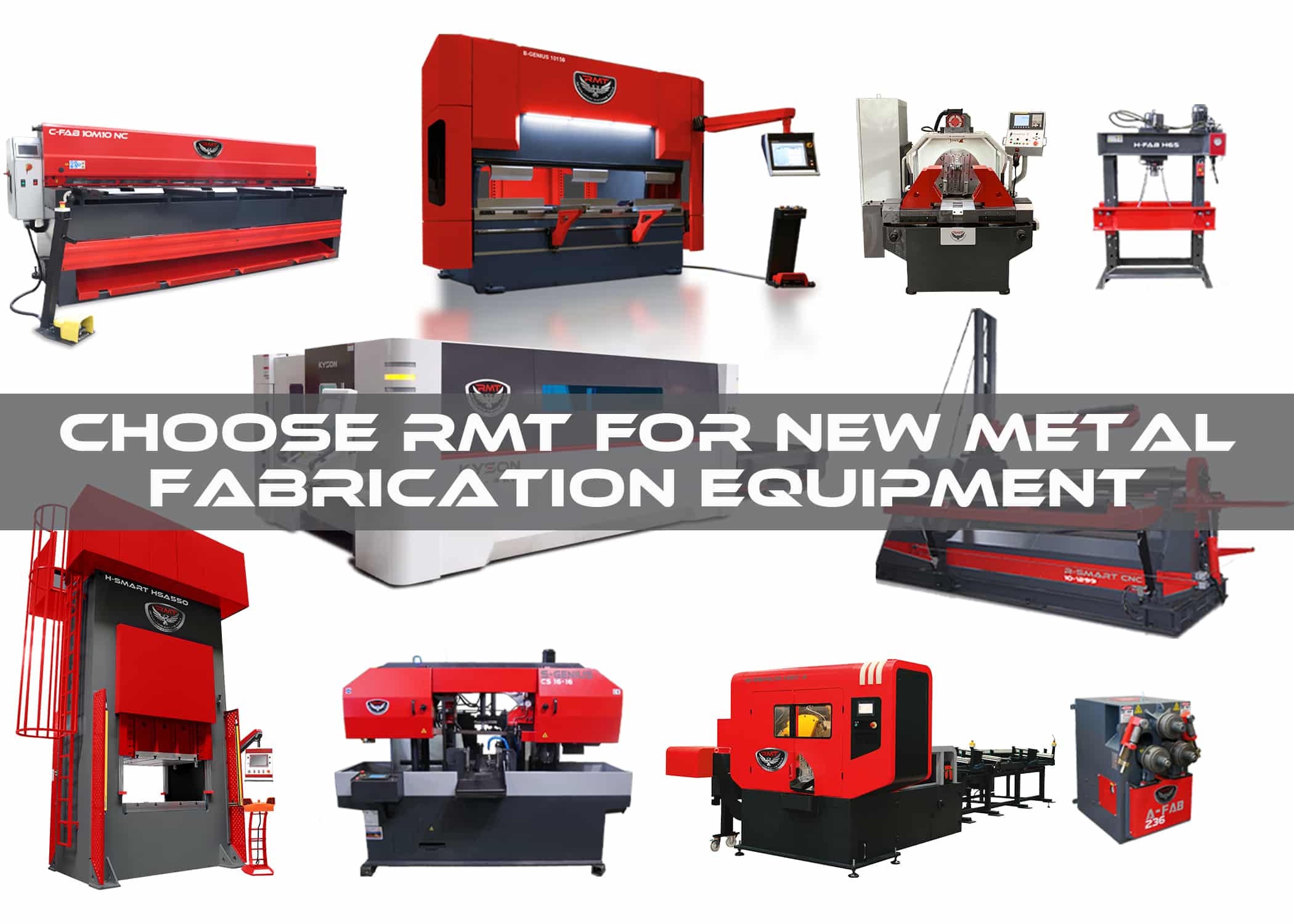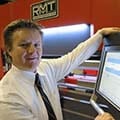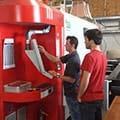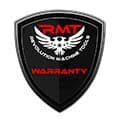Is It Better to Buy New or Used Equipment?
There are several solid arguments for a metal fabricator to purchase equipment that has been previously owned. Advantages of buying used fab machines can include:
- Cost Savings. New metal fabrication equipment can be significantly more expensive than used pieces, especially for larger and more complex machines. Buying used equipment can help a fabricator save a substantial amount of money while still achieving their production needs. In addition to a lower sticker price, there is often more room for negotiation on the final cost. Sellers might be more flexible on the price, especially if the equipment has been listed on the market for a while.
- Depreciation. Industrial equipment tends to depreciate rapidly in value during its initial years. By buying used equipment, a fabricator can avoid the steep depreciation that occurs with new machinery. This can be particularly advantageous if they plan to upgrade or replace the equipment relatively soon.
- Proven Performance. Used equipment often has a track record of performance and reliability. Purchasers can research the history of a specific piece of equipment and gather feedback from previous owners to gauge its performance over time. This can provide a level of confidence in the equipment’s capabilities.
- Immediate Availability. New equipment might have longer lead times due to manufacturing, shipping, and setup. Used equipment is usually readily available, which can be especially beneficial for the fabricator that has urgent production needs.
Most metal fabricators would likely prefer buying new equipment most of the time, however, if they have the capital to do so and they can be certain it comes from a trusted machinery producer. Benefits of purchasing new equipment over used include:
- Condition and Maintenance. New equipment should be ready to run “right out of the box,” with no surprises. Used equipment might have wear and tear, potential defects, or hidden issues that could lead to maintenance and repair costs down the line.
- Warranty and Support. Even if a piece of new metalworking equipment demonstrates an issue in performance, it should be something covered under an included warranty, with support and replacement parts readily available. Used equipment might not come with a warranty, or any warranty it comes with might be limited. Additionally, finding replacement parts or support for older equipment could be challenging.
- Technology and Features. Older used equipment might lack the latest technological advancements and features available in newer models. Depending on a fabricator’s production requirements, this could significantly impact their efficiency and capabilities.
While purchasing used equipment can be cost-effective in the short term, shop owners should always consider the advantages of a long-term investment in new metal fabrication equipment. There is considerable peace of mind that comes to a shop staff that doesn’t need to worry if a newly acquired machine will soon become obsolete or require constant repairs. New equipment is always a solid investment, especially for the shop that wants to stay ahead of the competition.
Revolution Machine Tools—Your One-Stop Metalworking Machine Source
In recent years, metal fabricators across North America have become familiar with Revolution Machine Tools. Based in the Intermountain West, RMT provides fabricators with a wide variety of highly accurate metalworking machines across the entire fabrication spectrum, including:
- Aircraft Rolls. Used primarily to form the tapered leading edge of aircraft wings, RMT offers 14 models of these precision fabrication rolls.
- Angle Rolls. 15 models of hydraulic profile rolls are available, along with four motorized models for lighter-weight work.
- Dishing-Flanging Equipment. Revolution Machine Tools has entered the dishing-flanging market and currently offers a cutting-flanging machine with a maximum diameter capacity of 157″.
- Fiber Lasers. RMT carries 13 models of fiber lasers for flat sheet and plate cutting, each with a variety of available power options, depending on the fabricator’s needs. They currently also offer two models of fiber lasers designed to cut metal tubes, pipes, angle iron, and other profiles.
- Finishing Machines. RMT offers 16 models of finishing machines for such operations as deburring, edge rounding, sanding, surface finishing, grinding, and polishing.
- Ironworkers. Seven models of ironworkers are available from RMT for those who need to punch and notch workpieces, as well as shear profiles such as round bar, square bar, flats, angle iron, H channel, and more.
- Pipe and Tube Machines. RMT’s lineup of Pipe Spool Master™ beveling machines include two manual models, seven CNC models that can also do boring and facing, and two models that include threading as well as beveling, boring, and facing. Additional pipe-working machines include three models of tiltable pipe rotators, two tube and pipe benders, a tube notcher/belt sander combo, as well as fiber lasers specifically configured for tube cutting. RMT can also source other steel pipe machinery, such as press bending lines and spiral pipe mill lines.
- Plate Bevelers. To bevel plate to prepare it for welding prior to rolling or other processing, RMT carries three models of plate beveling machines.
- Plate Rolls. RMT has something for any fabricator needing to roll plate or sheet metal into cylinders, with 57 models of motorized plate rolls and an additional 88 models of heavy-duty hydraulic plate rolls.
- Press Brakes. The flagships of RMT’s metalworking fleet are the 75 models of precision CNC press brakes that they produce for fabricators large and small. Their offerings include 20 standard three to five axis hydraulic brakes, another 20 advanced seven to 16+ axis hydraulic machines, a dozen models of large capacity hydraulic brakes, four electric press brakes, and 19 servo-motor driven hybrid brakes.
- Presses. 64 models of presses are available from RMT, including 12 C-frame hydraulic presses, 16 H-frame hydraulic presses, seven single-action column frame hydraulic presses, four hydraulic portal straightening presses, 16 workshop-type hydraulic presses, and nine models of horizontal presses.
- Saws. RMT boasts 34 models of metal-cutting bandsaws—three manual saws, 16 semi-automatic saws, 13 automatic saws, two fully automatic servo band saws—as well as eight models of cold saws.
- Shears. Revolution Machine Tools carries 42 models of metal-cutting shears, including a dozen types of high-speed mechanical direct drive shears, 12 models of hydraulic swing beam shears, and 18 different hydraulic variable rake shears.
- Welding Systems. RMT provides a large-scale chassis beam welding system for those who perform structural steel work, as well as three models of handheld laser welding and cleaning systems.
The Revolution Machine Tools Advantage
Revolution Machine Tools pairs its quality equipment with a dependable company that stands behind every machine. RMT’s guarantee of outstanding customer service includes experienced machinery consultants available to help customers before, during, and long after the sale. RMT offers pre-sale consultations with a production area site assessment to mitigate any possible problems with equipment, such as hookups, waste disposal, or rigging issues. RMT provides complete installation of all equipment and can train all operators. RMT’s factory-trained inhouse service techs are always available to respond to problems of any size, and they offer long-distance troubleshooting and remote support around the clock. They have their own parts and tooling department and can provide preventative maintenance plans to keep machines running smoothly.
“Here at Revolution Machine Tools, our goal is to be a partner with you for the rest of our life,” said company founder Kyle Jorgenson. “Our customers are our friends. We’re here to help you, and to help you make informed decisions, the proper decisions on an investment in a machine tool.”
Call Revolution Machine Tools today for a competitive quote on your next new high-precision metalworking machine.
